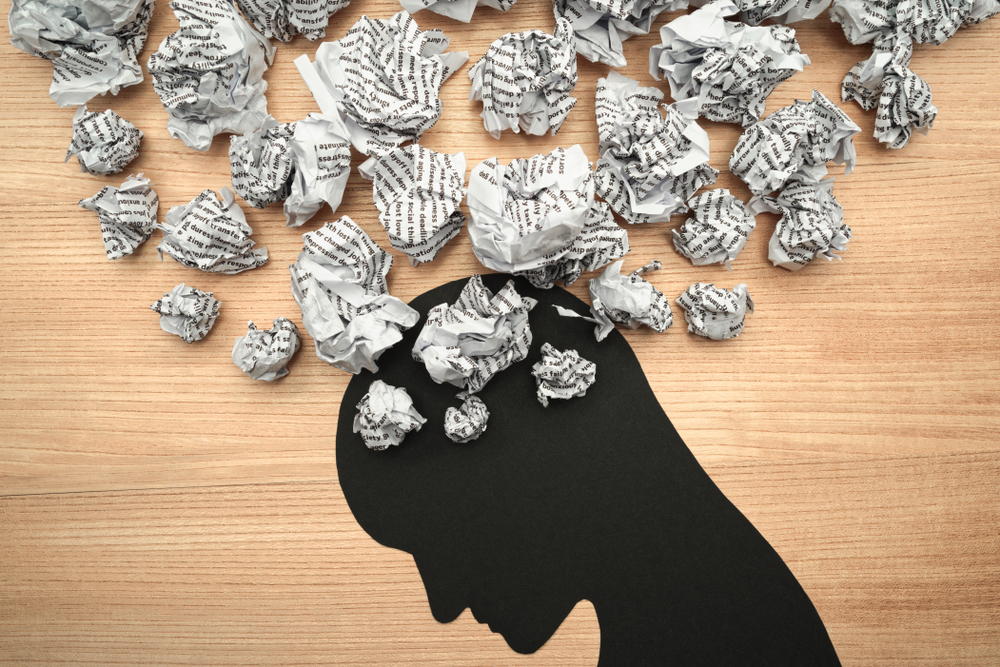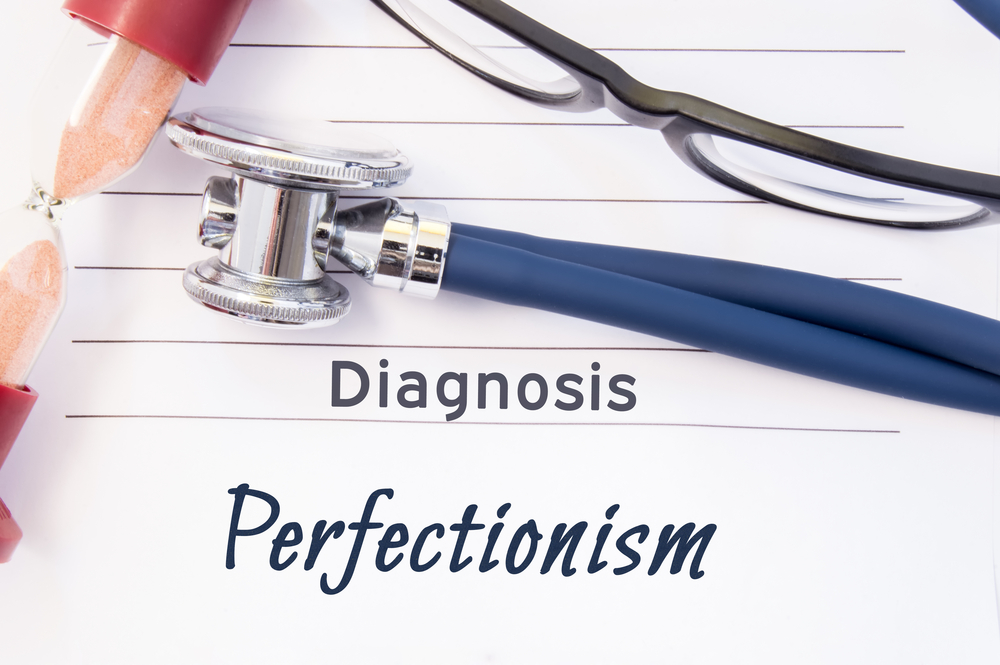We talk a lot about depression but anxiety can be completely debilitating. It can also silently creep into our lives without us even realizing it making us feel stressed, worried, and well, super anxious. Identifying anxiety triggers is the key to avoiding them and improving your overall mental well-being.
1. Relationship Stress

We need happy, healthy, supportive relationships to thrive. Conflicts and problems in personal relationships with a partner, friend, family member, or work colleague are major anxiety triggers. Use open communication to express your concerns in a safe space and use conflict resolution to resolve problems otherwise, things will fester and lead to overthinking, stress, and increased anxiety.
2. Time Blindness

An inability to manage your time can lead to feeling overwhelmed, anxious, and like a failure. Constantly rushing to meet deadlines, difficulty juggling tasks, and never being on time for social activities put you in a perpetual state of stress. Strengthen your executive function and time management skills with a coach or time management app. If you are always late or overcommit unrealistically this could also be a sign you have undiagnosed ADHD as time blindness is a symptom so it’s worth getting an assessment.
3. Caffeine Fix

Most of us turn to coffee to kickstart our day, but excessive caffeine is an instant ticket to anxiety. Caffeine stimulates the nervous system, causing heightened alertness and jitteriness which can escalate into feelings of panic and anxiety. Try a soothing caffeine-free herbal tea instead or limit your daily intake.
4. Sleep Issues

Getting a good night’s sleep is crucial for our mental and physical health. Aim to get 7-9 hours of uninterrupted sleep so your body can properly repair overnight and make it more resilient against stress. When you lack sleep, you become more susceptible to anxiety triggers during the day and prolonged anxiety can lead to depression and other mental health issues.
5. Bad Diet

Studies show what we eat has a direct impact on our mood, overall health, and anxiety levels. If you consume a diet high in sugar and processed foods this causes blood sugar to spike and crash leading to irritability, anxiety, and depression. Eat a well-balanced diet rich in fruits, vegetables, lean proteins, and whole grains to fuel your brain and fight free radicals which are toxins in the body that contribute to aging and health issues. Tucking into plenty of fatty fish like salmon, mackerel, and sardines which are rich in omega-3 can also boost and stabilize your mood.
6. Chronic Stress

Stress and anxiety often go hand in hand and both ultimately lead to depression and more serious mental health issues. When stress from work, relationships, financial worries, and other factors become a constant companion it can lead to chronic debilitating anxiety. Stress taxes the body’s nervous and response system, leaving you in as constant heightened state of worry, fear, and anxiety. Engage in stress management via proven practices like meditation, mindfulness, exercise, yoga, or journaling.
7. Social Media Overload

In today’s tech-obsessed world, constant exposure to social media especially envy-inducing images and negative news cycles spikes anxiety levels especially if you lack self-esteem and tend to compare yourself to others. It’s a filtered reality (trust us) and curated unrealistic portrayal of life, beauty, and body image which can fuel insecurity and increase anxiety over time. Limit the time you spend doom scrolling, focus on real-life interactions, and spend more time in nature as there is unsurprisingly a reported increase in people suffering from nature deficient disorder.
8. Negative Mindset

Overthinking, ruminating, and having a negative mindset can exacerbate fear, worry, and feelings of anxiety. Obsessing over worst-case scenarios or engaging in catastrophic thinking will leave you in a constant state of anxiety. Reframe negative thinking with therapy, cognitive-behavioral techniques, and journaling to process your fears and emotions, and express gratitude which has proven to help adopt a more positive mindset.
9. Not Enough Exercise

Working out and exercising is a natural anxiety reducer. When you exercise endorphins, happy hormones in your body, are released which are instant mood boosters. Whereas if you lack exercise and live a sedentary lifestyle this can amplify anxiety and depression. If you’re not a gym junkie, go for a long walk; experts recommend we get 10,000 (5 miles) of steps in a day to increase our health, lower the risk of heart disease and boost our mental wellbeing.
10. Drinking Too Much

There is no healthy amount of alcohol you can drink and while that nightly beer or glass of wine might help you unwind and relax, alcohol is a depressant and increases anxiety. Alcohol disrupts the balance of neurotransmitters in the brain, making your mood and emotions unstable and too much alcohol, which is high in sugar, can cause inflammation in the body, aging your skin faster and putting you at a greater risk of liver and kidney disease and other serious health issue.
11. Financial Burdens

Money may not equal happiness but financial insecurity is a major source of anxiety for most people. Constantly freaking out over bills, rent, debt, and not having enough money to maintain your lifestyle puts you in a constant state of stress and induces anxiety. Create a budget, seek financial advice, and see where you can lower your expenses. That daily cup of joe is costing you around $2ooo per year.
12. Overcommitting and People Pleasing

Overpromising, over-committing, and taking on too many responsibilities can cause you to feel overwhelmed and anxious. If you are overcommitted socially, in your relationship, at work, or financially, learn to set boundaries and learn to say no. It’s better to say no rather than let yourself and others down. And beware of people pleasing as you aren’t honoring your own time and needs and this leads to resentment, burnout, and increased anxiety. Work with a therapist or try wellness practices to boost your self-esteem.
13. Obsessive Perfectionism

There is no such thing as the perfect person or perfect life. Striving for perfection and setting unrealistic goals only adds unnecessary pressure and sets you up for failure all of which sends anxiety soaring. Accept that you are human and flawed (we all are) and that making mistakes is part of life. Learn how to fully relax, be more patient with yourself, and address any self-esteem issues that could be fueling your need for obsessive perfectionism.
14. Environmental Assault

There’s a good reason we feel much calmer in nature and quiet moments of relaxation and reflection. We live in the fast-paced 21st century and are constantly triggered, and borderline assaulted by our environment. Busy cities, crowded places, loud noises, chaotic settings, pollution, and technology overload can overwhelm our senses and increase anxiety. Find calm amidst the chaos with self-care practices like walking in the park, a long bath, and a relaxing meditation track.
15. Worrying about Your Health

This is a catch-22. Excessively worrying about your health can cause stress and anxiety which over time can lead to serious health issues. Stop playing Dr. Google by obsessively searching symptoms online or making excessive trips to the doctor. Keep up your annual medical visits so your healthcare provider can monitor your vitals, assess any risks, and conduct screenings. Focus instead on a well-balanced diet, exercising regularly, getting a good night’s sleep don’t engage in toxic behaviors like smoking, drinking, or overeating.
16. Loneliness and Isolation

Alone time and relaxation are important for our mental health but so are happy relationships connections and social interactions. If you feel lonely or don’t have a support network this can increase feelings of isolation, sadness and anxiety. Take up a hobby, join a class, volunteer and connect with your community to keep loneliness at bay and boost your health and longevity.
17. Unresolved Trauma

Past traumas live and manifest in our bodies, affecting the way we show up in the world, and can cause us to engage in toxic or unsafe behaviors and make us more prone to drug and alcohol addiction. It’s important to gain awareness of any unresolved trauma as living with it can cause a heightened state of alertness, worry, anxiety, and depression. Seek therapy to identify, process, and heal trauma to improve your overall mental health, happiness, and well-being.
18. High Stress Job

We spend a lot of time at work so it’s important to enjoy what you do and strike a work/life balance. If you are under extreme pressure, have an unrealistic workload and deadlines, a lack of support, and job insecurity this causes chronic, prolonged stress and crippling anxiety. Acute stress can lead to burnout, severe depression, and more serious health issues. Engage in stress management, talk to a supervisor, and find a new job if your current one is unmanageable. Life is short.




